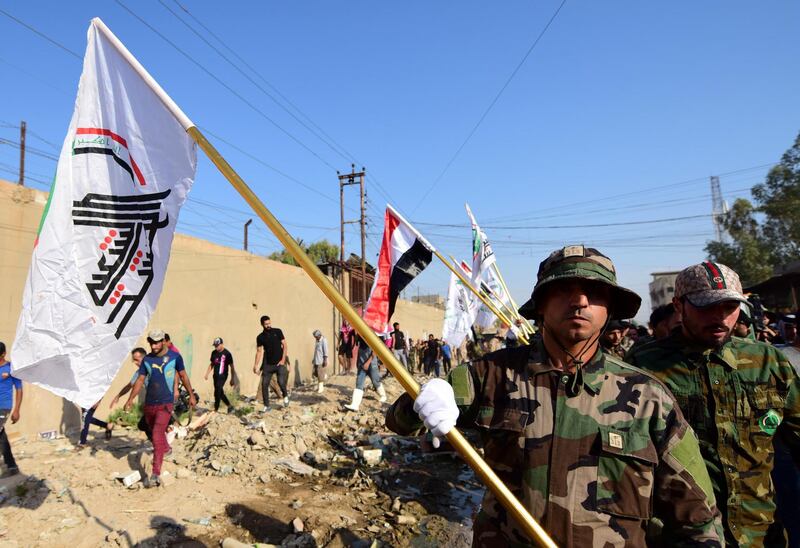In the past few days, Israel has escalated its aggression in a series of attacks on Iraq, Syria and Lebanon. Under the pretence of self-defence, Israeli forces have struck at the heart of the Levant, breaching three countries' sovereignty and striking two Arab capitals in one day in a number of drone and air strikes. That it has been able to do so with near-total impunity says much about the weak governments sitting in each of the countries under attack, and the failure of the international community to hold Israel to account.
On Sunday, two Israeli drones crashed in the southern suburbs of Beirut, where Hezbollah is based. Israeli air strikes also targeted a Palestinian group in the Beqaa valley the following day. Hours before the Beirut attacks, Israeli strikes killed two members of Hezbollah in Damascus, where the group is fighting alongside the Syrian regime. Iraq has also been struck relentlessly in the past few weeks, with several attacks targeting the Popular Mobilisation Forces, an umbrella group of mostly Iran-aligned militias.
By doing so, Israel is preying on the weakest countries in the region. Lebanon has long been prone to sectarian divisions; Syria has been in the throes of civil war for more than eight years; and Iraq is still struggling to recover from its conflict-ridden past. All three countries lack a stable and strong state, rendering them vulnerable to the forces of Tehran-backed militias that thrive off this power vacuum. These armed groups compete with state authorities for influence and power, giving Israel the perfect opportunity to intervene on the grounds that it is defending itself against Tehran’s proxies – a convenient excuse for Israeli Prime Minister Benjamin Netanyahu to flex his muscles ahead of the Israeli elections next month.
These breaches of Syrian, Lebanese and Iraqi sovereignty have not come in isolation. Israel has been testing the water with sporadic strikes and little reaction. It intervened in Syria’s war as early as 2013 to hit Iranian military bases, intensifying its attacks in the past couple of years. Meanwhile it is still technically at war with Lebanon and routinely violates its airspace. Iran-backed Hezbollah and Israel have also exchanged rockets, although there have been no casualties since the 2006 war.
Yet the international community has either turned a blind eye to these incursions or worse, outright supported them. In a tweet in response to the most recent strikes on Syria, US Secretary of State Mike Pompeo expressed his "support for Israel's right to defend itself" fromIranian threats. This lack of accountability has emboldened Mr Netanyahu, who is making the most of heightened US-Iranian tensions to pursue his own agenda on Arab soil.
Israel has to be held accountable for its actions if an escalation is to be averted. The international community must also send a strong message that such breaches of international law will not be tolerated, and empower the Lebanese and Iraqi governments to look after their own citizens and protect them from Tehran-backed groups. A strong state is the best deterrent to Israeli incursions and Iran-backed militias.





